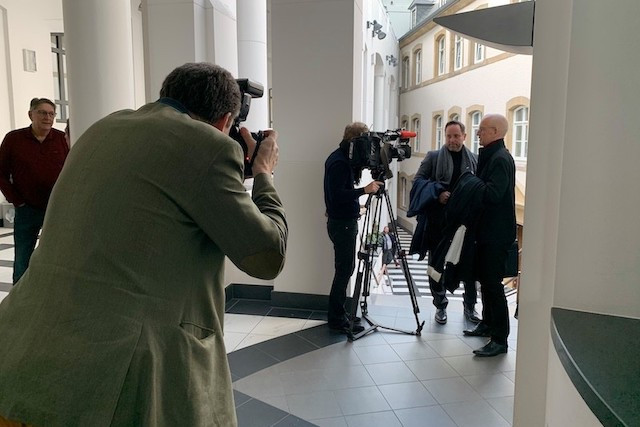Expected on 30 April the judgment of Marco Mille, André Kemmer and Frank Schneider was finally delivered on 25 June.
The case related to illegal wiretaps conducted in 2007 on former Srel informant and computer expert Loris Mariotto, and the theft of an encrypted CD allegedly containing details of conversations between Grand Duke Henri and then prime minister Jean-Claude Juncker about the 1980s bombings.
Mille claims that he called Juncker to request and obtain permission to launch an emergency procedure for the wiretap. Mariotto had delivered an encrypted CD to André Kemmer, the contents of which he said were “explosive”. It is claimed the conversation alluded to rumours of the participation of Grand Duke Henri’s brother, Prince Jean, in the 1980s bombings. Juncker told the court that he did not remember the conversation in detail and claimed he did not recall authorising the surveillance. He did however say he had “firmly resolved to monitor Mr Mariotto” and had requested the “CD be deciphered” because the “rumours could seriously harm the functioning of the State”.
The judges found discrepencies in the testimonies which suggested the recording, which was conducted through a listening device in Juncker’s watch, was made with the then prime minister’s knowledge.
The court exonerated Marco Mille, who was accused of having stolen the CD and the recording from the watch by keeping them in a safe. He then handed them over when the affair broke, triggering the early elections in 2013, which brought Juncker’s reign as prime minister to an early end.
Speaking after the ruling, André Kemmer told our colleagues at Paperjam: “We were right on the fundamental points. We argued that the Prime Minister had authorised the listening of Loris Mariotto and the judge accepted as established that there was indeed authorisation for the emergency procedure. That is the heart of the matter. Jean-Claude Juncker did not really remember giving it but could not exclude it. He could have taken the stand and said that he remembered giving it, but he lacked the political courage to do so. The court relied on the recording of the watch [made two days after the listening], which shows that Mr Juncker was aware of the listening.”
